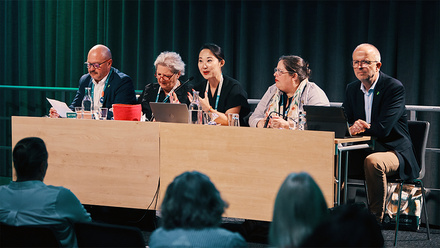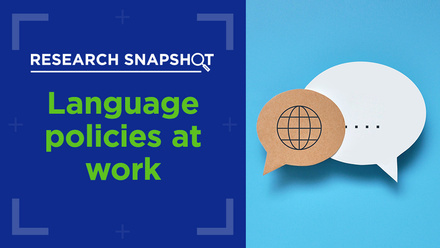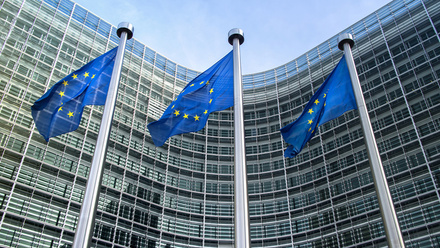Coordination, collaboration, creativity: one award winner’s steps to success

I’ve had the pleasure (and sometimes pain!) over my career of working for several innovative and ambitious leaders who know what they want. Alas, knowing what you want and making it happen are often two different things.
Much has been written about the strategies and drivers of comprehensive internationalisation. Much less, however, has been written about how to actually implement or operationalise this. As Head of Operations of Global Engagement at Bournemouth University, that’s where I come in.
As part of the team shortlisted for the EAIE Institutional Award for Innovation in Internationalisation, I joined others from the Bournemouth University Global Engagement team this year at the 2018 Annual EAIE Conference in Geneva. When we later won the award – the first award won by our international team and a huge honour amidst the steep competition – it was a great validation of our team’s ability to both define what we want and innovate to make it happen. This post is a look at a few of the practices that led to our being nominated for and eventually winning the Institutional Award.
No need to re-invent the wheel
The particular projects that formed our submission for this award had two things in common:
- None of them were really new – each project pulled together what we were already doing and either re-defined, re-focused or re-energised that activity; and,
- All involved engagement with stakeholders that spanned the university footprint, be it staff (both academics and administrators), students, businesses, our institutional and industry partners, government and so on.
For example, the concept of the Global Festival of Learning (GFOL) was derived from our existing Festival of Learning, which we have run for more than five years to showcase and share our knowledge and expertise with our local community. The driver for the GFOL though wasn’t simply about taking this model global.
Like most universities, faculties at Bournemouth would send out academic colleagues to different countries at different times to explore research collaborations. We also might send out academics to the same countries at different times of the year to support recruitment, alumni activities or partnership development. We would also of course be sending out students to these countries for mobility. The GFOL was thus basically about bringing these activities together to maximise resources, investment and, importantly, impact.
Innovation doesn’t have to be something totally new and different... it can come from what we’re already doing – we just need to work together to make it better.
Whilst coming up with the concept was one thing, operationalising it wasn’t easy. Even now, in our fourth year, we are continuously evolving and refining the concept and approach. To date we have run nine Festivals in India, China and ASEAN, visiting 16 different cities across six different countries, engaging with around 4000 people. Whilst the immediate benefits of this are quite clear – extensive staff and student mobility and increased institutional profile – it has now also started to yield the all-important ‘hard’ impacts in the form of student recruitment, strategic partnerships, and research and practice collaborations.
Seeking synergy between institutional priorities
Another project that formed part of the basis for our award was the Global Talent Programme (GTP). This combined two highly important institutional (and sectoral) priorities: internationalisation and employability. Funded by grants from the Higher Education Academy and Higher Education Funding Council for England, the GTP is now the university’s core extracurricular employability offer for our students.
A key driver for the programme though was the recognition that, while we were doing a lot around employability and internationalisation, several challenges remained: students (or staff) weren’t aware of the opportunities, or didn’t understand the benefits; the two agendas, despite having much potential for mutual benefit, were disjointed; and existing activities weren’t sufficiently personalised or scalable.
Thus the GTP was born. The programme provides over 110 activities that students can choose from, both physical and digital. Students also have access to an online platform that allows them to view and engage with the full extracurricular employability offer in a single location, at any time and in any place. After being initially piloted with around 200 students, the programme is now fully embedded, having reached around 700 students so far.
Putting comprehensive internationalisation into practice
Let me end by summing up what I think has been crucial in our journey towards comprehensive internationalisation:
- Coordination – If you are thinking, “oh, they must have had a massive team and budget to do this?” – no, these projects were variously developed, coordinated and implemented by a relatively small core team. What was key though was that this core team was part of a wider matrix of key stakeholders – what we called the Global Engagement Team – that worked closely with key stakeholders from faculties and professional services to deliver these projects.
- Collaboration – This was crucial, and it has taken time to build positive and impactful working relationships across departments. The Global Engagement Team was an important enabler of this.
- Creativity – We haven’t had a big budget for this work, so we have had to utilise resources in a really creative way. For example, we aligned the GTP and the GFOL so that we were able to use a single investment to support multiple outcomes.
It’s been a real pleasure to be a part of the team recognised by the EAIE for our internationalisation efforts, and as an ‘operational’ person, it is particularly rewarding to be part of an award for ‘innovation’. What this award has helped me realise though is that innovation doesn’t have to be about creating something totally daring, new and different. It can quite easily come from what we are already doing – we just all need to work together to make it better.






